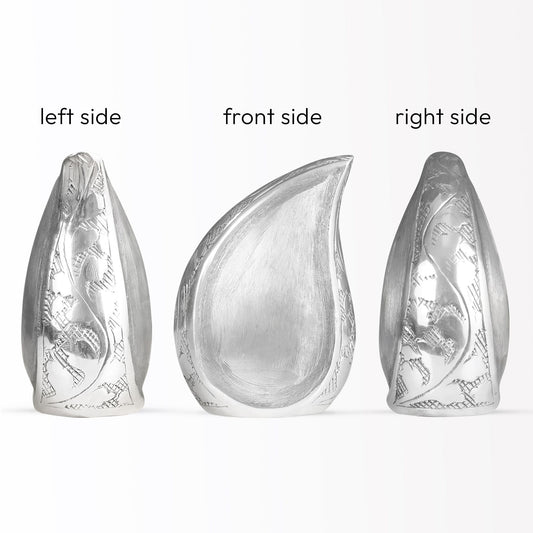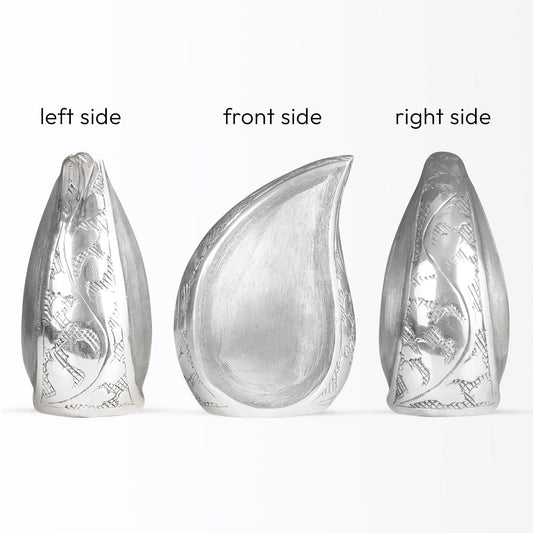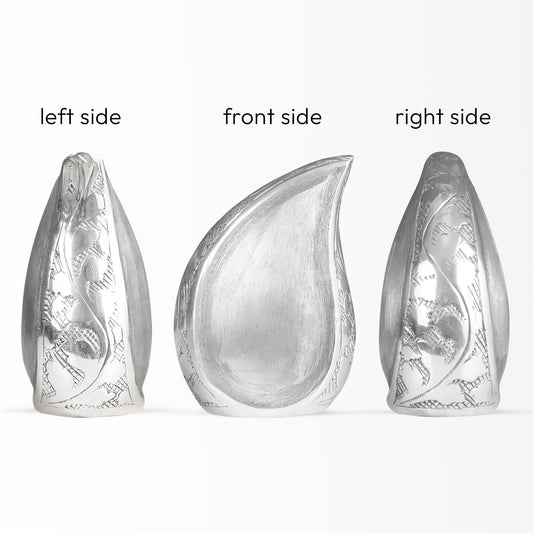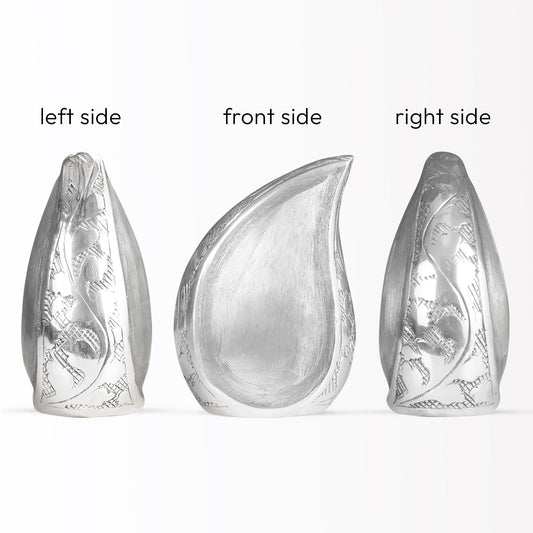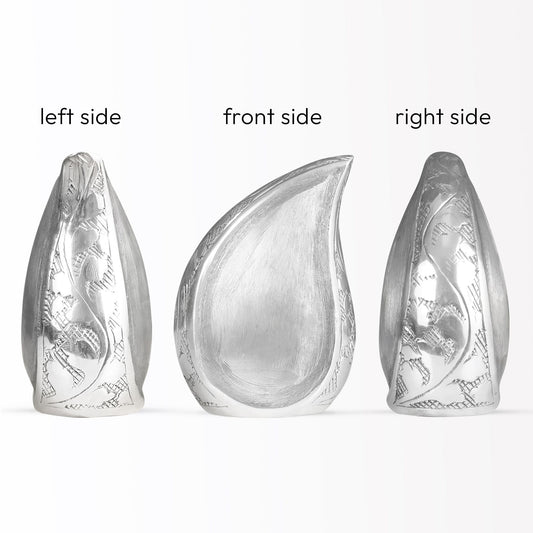Popular Urns
Sympathy Messages: What To Write In A Sympathy Card

Beginning with a Deeper Salutation:

It's good starting off with "Dear - Name," since this is one traditional method of addressing a person whom you are grieving for, and saying "To the -Last Name Family" let's them know that you stretch a little further in your expression of sorrowfulness.
Once you've opened your card, there's a need for you to clearly show that you sympathize with the situation at hand. This can be as general as a statement that confirms you understand their loss. Words like "I really am sorry for your loss" or "My heart goes out to you in this trying time" are natural and soothing words. This is an initial reaction that acknowledges how they are feeling and presents an empathetic voice.
To Recall the Deceased

Supporting the Members
Besides these messages of condolence, extending support goes a long way in showing that you are there with them in their time of bereavement. Simple phrases like "If there is anything I can do to help, please let me know," or "I am here for you whether you need someone to talk to or just some company" show that you care and want to be available in any way.Share a Personal Memory With The Family
You may share a personal memory if you have close connection with the deceased. This can often bring a smile through the gloom and remind those who grieve of the joy their loved one brought into other's lives.
You could say, "I never forget the time we [shared experience]. It perfectly captured their spirit and zest for life." A personal touch like that really makes your message more intimate and sincere.

Ending with a Soft Thought
Let your card close with an encouraging remark. A final word wishing someone well will raise hopes of good tidings for souls that shed tears. For example, you can write "Wishing you peace and comfort in the coming days" or "Thinking of you and sending love in this trying time." This way, you build on your outpouring of support and concern.
Close Well
Sign your name in a way that reflects your relationship to the recipient. For more formal relationships, a simple "With deepest sympathy" followed by your name is appropriate. "With love" or "Thinking of you" may be suitable for closer friendships. Your signature is the final personal touch to your message.
Passing On The Last Words
What you write on the condolence card will possibly be the most comforting to them during the times of sorrow. Let them know you're thinking about them when they can feel at their worst.
Being given the time to appreciate the fact that they are being remembered, relieving some of the burden of sorrow by recalling cherished memories, giving them support, or just making expressions of condolence can be very useful. Remember, it is not the message but the sincerity that counts.
ALSO READ:


















